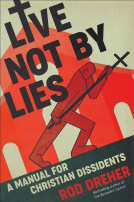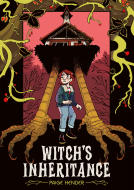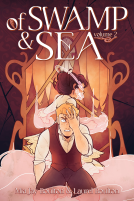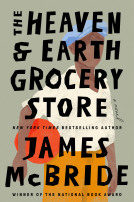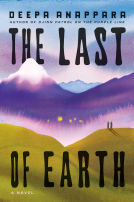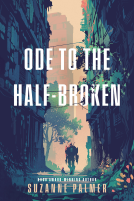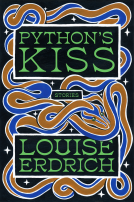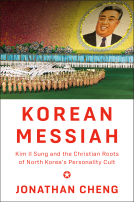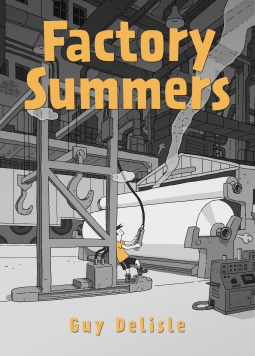
Factory Summers
by Guy Delisle
This title was previously available on NetGalley and is now archived.
Send NetGalley books directly to your Kindle or Kindle app
1
To read on a Kindle or Kindle app, please add kindle@netgalley.com as an approved email address to receive files in your Amazon account. Click here for step-by-step instructions.
2
Also find your Kindle email address within your Amazon account, and enter it here.
Pub Date Jun 15 2021 | Archive Date Jun 15 2021
Drawn & Quarterly | Drawn and Quarterly
Talking about this book? Use #FactorySummers #NetGalley. More hashtag tips!
Description
The legendary cartoonist aims his pen and paper toward his high school summer job
For three summers beginning when he was 16, cartoonist Guy Delisle worked at a pulp and paper factory in Quebec City. Factory Summers chronicles the daily rhythms of life in the mill, and the twelve hour shifts he spent in a hot, noisy building filled with arcane machinery. Delisle takes his noted outsider perspective and applies it domestically, this time as a boy amongst men through the universal rite of passage of the summer job. Even as a teenager, Delisle’s keen eye for hypocrisy highlights the tensions of class and the rampant sexism an all-male workplace permits.
Guy works the floor doing physically strenuous tasks. He is one of the few young people on site, and furthermore gets the job through his father’s connections, a fact which rightfully earns him disdain from the lifers. Guy’s dad spends his whole career in the white collar offices, working 9 to 5 instead of the rigorous 12-hour shifts of the unionized labor. Guy and his dad aren’t close, and Factory Summers leaves Delisle reconciling whether the job led to his dad’s aloofness and unhappiness.
On his days off, Guy finds refuge in art, a world far beyond the factory floor. Delisle shows himself rediscovering comics at the public library, and preparing for animation school–only to be told on the first day, “There are no jobs in animation.” Eager to pursue a job he enjoys, Guy throws caution to the wind.
Advance Praise
One of Publishers Weekly's most anticipated books of Spring 2021!
One of Publishers Weekly's most anticipated books of Spring 2021!
Available Editions
| EDITION | Other Format |
| ISBN | 9781770464599 |
| PRICE | $22.95 (USD) |
| PAGES | 156 |
Links
Average rating from 23 members
Featured Reviews
 Sarah S, Librarian
Sarah S, Librarian
I'm a huge fan of Delisle's work and while this one wasn't quite as long or detailed as some of the books I really enjoyed the insights of Quebec, before reading this I had no idea that it was so unusual to hear an anglophone or that you could grow up in Canada completely French.
I'm a printer's daughter and much of the factory layout, noise, heat & danger felt very familiar, as did the shadowing of how computerisation was going to change the landscape.
This is an engaging graphic novel about the author's summer job that he did when he was 16 years old. The author, Guy Delisle, worked in a pulp and paper factory for three summers until he managed to find work as a comic artist.
The novel is quite simple but powerful in its telling. We get to explore daily working life in the mill through the eyes and experience of a sixteen year old. Guy gets to experience the instability of working life, the ups, downs and quirks of teammates, the risks and rewards. The story shows him learning factory life and fitting in with the different characters. He doesn't really enjoy the factory but at the same time he doesn't hate it either. It is a hot, noisy, weird place with weird characters who are his colleagues but in a strange way his life is enriched by his experience.
The story also portrays his relationship with his father who has a senior role at the mill. Guy hides this from his team mates so that it doesn't jeopardize his realtionships with them. Guy immerses himself in life at the mill while aiming for college. It shows that he doesn't settle for factory life, but instead hopes for something different. His factory life is temporary, just a place to pause and earn money which will hopefully support him while he studies.
What struck me was his analytical observation of life in the mill and the way he does his best to do his work and not stick out, knowing that he is already visible because he is so young. Working in the mill is a means to an end for him but at the same time he becomes part of the team there. He is both part of the team and an outsider. It is a story about growing up and how people move through the ebbs and flows of life.
The story is also a reflection on choices, life and career. It made me think about my own career and how I have never settled, always wanting to move and experience other roles, other work and meet other people. At the same time there are those people who are quite happy with where they are even if the place they are is unpleasant. Some people are happy with the same job forever. Other people need to move, take risks, and experience change. There is stability and familiarity at the mill but there is also change and the workers there experience change happening around them.
I enjoyed this. It was a very satisfying reading experience. The artwork and colouring is simple and in that way it doesn't distract the reader from the story. We find ourslves experiencing life in the mill as a 16 year old and we have the same questions and observations.
The best aspect of the story is the way 16 year old Guy copes with the mill, he has ear plugs and books for when there is nothing much to do. Working in the mill does not quench his creativity but instead has a way of enhancing it. I really enjoyed this memoir.
Copy provided by publishers via Netgalley in exchange for an unbiased review.
Factory Summers moves away from Guy Delise’s usual travelogue form and into graphic memoir, with tales of teenage employment labouring in a paper mill, where his somewhat absent father worked as an engineer. It touches on themes of class, masculinity, and coming-of-age.
Delise’s style is always a delight, and he delights in new ways here, bringing us nostalgia instead of tales from a foreign world. Delise’s nostalgia is not rose-tinted, it instead evokes a relatable awkwardness. Many readers will understand the hazing involved in being the new kid at a new job. Especially in work where there is a physical element, a requirement to develop a toughness like a second skin to survive. It is not only his age that makes young Guy stand out, but also his status as a temporary summer hire, the older labourers knowing he is an art student with aspirations towards animation.
There is a very honest class tension in this book, which I’m glad Delise explored, where other workers assume young Guy is going to be a stuck-up, entitled kid. Partly because of his education, partly because of his father being an engineer upstairs in the same factory, away from the danger and better paid. Young Guy isn’t stuck up or entitled, but at the same time, most of the younger workers and those that stand out (one is into bodybuilding, another has a hair braid) are wary of getting ‘stuck’ working in such a place, where working conditions can lead to deafness over time, or sudden death at any moment. They might not look down upon the more senior workers, but they don’t want to become them. Delise explores these tricky themes with finesse and honesty.
 Megan R, Librarian
Megan R, Librarian
This was a fascinating biographical look at Guy Delisle's summers working in a the same paper factor his father called professional home. Although there is not much to say for a plot, the way Delisle's relationships with his coworkers and his position in the factory develops makes each page flow smoothly into the next. It provides some interesting commentary of the difference between those we know and those we happen to spend time with.
 Geoffrey S, Librarian
Geoffrey S, Librarian
Guy Delisle has previously taken readers along with him on his journeys around the world to Myanmar, North Korea, Israel, and China. Now in his latest work, “Factory Summers,” it’s quite a change of pace as readers are taken to a place that they've never been to before - to Delisle's native Quebec City.
This latest graphic novel specifically details his summers spent working in a paper mill as he begins his studies as an animator. Now I confess that initially wasn’t sure this would be on par with his past works, but it didn’t take me long to completely disregard such silly thoughts. I quickly found myself fascinated by everything that Delisle had to share about the ins and outs of working on the factory floor amongst titanic roles of paper set atop equally gargantuan rollers. And not only did he cover his various odd jobs or explain the enormous roaring machinery he cautiously worked alongside, but there was plenty else of interest for him to mention and detail. There are close calls around the machinery, some curious characters who he worked side by side with, and a range of various divides between part-time workers like him and the full-timers and the blue-collar factory floor workers and the white-collar engineers, and also an opportunity to detail his somewhat awkward relationship with his own father, an engineer working for the mill. There were even little snippets of insight about growing up and living in Francophone Canada, which I gobbled up as quickly as I did everything else.
Fans of his past works will not be disappointed in the slightest, for Delisle does it once again. I genuinely believe that this man could write a graphic novel about a sandwich that he had once, and it would be nothing short of delightful.
The story of a boy working a summer job at a paper mill, balancing his life goals of becoming a comic book artist, and the lessons he learns along the way from the older employees. A great slice of life comic, this was both cozy and somehow nostalgic, even though I’ve never been to Canada, let alone worked in a paper mill.
 Ryan A. F, Librarian
Ryan A. F, Librarian
I am not usually a fan of books that are character studies, but this one is and I was thoroughly intrigued. We follow the author/artist as he works summer in the paper mill between studying to be an artist. The lesson on how paper mills work was really cool, but following Guy as he wades through life as the young person figuring out what it’s all about is compelling. Try not turning the pages one you start. The entire book is black and white with spots of a yellow or orange color and it creates a perfect setting for this story. This book was a translation so it marks off some reading challenges for me which is good.
The storytelling is just as engaging as his earlier book Pyongyang, and DeLisle does a great job of communicating it in a simple style which turns out to be quite beautiful in its simplicity. Speaking as someone who had worked my share of blue collar jobs in college, I found the sense of grungy culture at the paper mill fascinating.
 Andy B, Librarian
Andy B, Librarian
Factory Summers really hit home for me. I'm from a town that grew up around a paper mill, had family who worked in the mills, and worked summers in one during college. So much of that experience seems universal to factory work, even 900 miles and 20 years apart: the friction between workers and management, the irrational dislike of anything different (the pony-tail kid was a perfect example), the horrific accident urban legends that sometimes weren't urban legends, the unrelenting sound over a 12 hour shift. While I'm sure that factory work isn't as common a summer job as it once was, I think Delisle's work will resonate with a lot of people.
I loved his art style as well. The physical effort of his younger self's work and the way in which he showed Young Guy tuning out are just a couple of examples of how well Delisle conveys meaning while maintaining such a clean look.
 Chelsey H, Librarian
Chelsey H, Librarian
Thank you to Netgalley for sending me a free eARC for an honest review.
I honestly really enjoyed this graphic novel. As an artist who also came from a town with a papermill, I felt a kinship to the author and narrator. While our mill wasn't steeped in as much history, I understood much of the lingo and layout he described. The men he writes about meeting felt real and very familiar to me due to a similar upbringing. The story was very well told through detailed artwork, with a limited color pallet, and architectural drawings that show off all of the buildings to great effect.
For anyone wanting to feel some nostalgia for those early jobs and the characters you met while working them, Factory Summers will leave you feeling wistful.
Readers who liked this book also liked:
Mia Jay Boulton; Laurel Boulton
Comics, Graphic Novels, Manga, Romance, Sci Fi & Fantasy
James McBride
General Fiction (Adult), Historical Fiction, Literary Fiction
Pelumi Olatinpo
Essays & Collections, Multicultural Interest, Politics & Current Affairs
L.M Montgomery
Children's Fiction, Comics, Graphic Novels, Manga, Teens & YA

